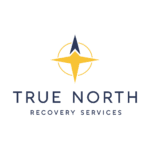Peer recovery coaches have become essential allies in the fight against opioid use disorder, bridging the gap between clinical treatment and lived experience. These trained individuals, who have successfully navigated their own recovery journeys, offer unique insights and unwavering support to those struggling with addiction. Their role extends far beyond traditional counseling – they provide hope, reduce stigma, and dramatically improve treatment outcomes through authentic connection and shared understanding.
What Is a Peer Recovery Coach?
A peer recovery coach is someone in sustained recovery from substance use disorder who mentors and supports individuals currently seeking treatment. These professionals have firsthand experience with addiction and recovery, which allows them to connect with patients on a deeply personal level. They’re formally trained and often embedded within healthcare teams to provide non-clinical support services that complement traditional medical treatment.
Unlike traditional counselors or therapists, peer recovery coaches bring the power of shared experience. They understand the challenges, fears, and triumphs of recovery because they’ve lived through them. This authentic connection creates a foundation of trust that can be transformative for someone beginning their recovery journey.
Key Characteristics of Effective Peer Recovery Coaches
- Personal recovery experience from substance use disorder
- Formal training and often state certification
- Strong communication and active listening skills
- Non-judgmental approach and empathy
- Knowledge of community resources and treatment options
- Commitment to ongoing personal recovery
How Do Peer Recovery Coaches Help People with Opioid Use Disorder?
Peer recovery coaches help individuals with OUD by providing emotional support, connecting them to treatment resources, and offering practical guidance based on lived experience. They assist with navigating healthcare systems, reducing feelings of isolation, and maintaining motivation throughout the recovery process. Their support has been shown to increase treatment engagement and improve long-term outcomes.
The support peer coaches provide is multifaceted and personalized to each individual’s needs:
Immediate Crisis Support:
When someone experiences an overdose or crisis moment, peer recovery coaches can intervene at critical junctures like emergency departments or hospitals. They offer immediate support when individuals are most vulnerable and receptive to change.
Treatment Navigation:
The addiction treatment landscape can be overwhelming and confusing. Peer coaches help individuals:
- Understand different treatment options available
- Schedule appointments and follow up on referrals
- Navigate insurance and payment processes
- Access medication-assisted treatment (MAT) programs
- Connect with community support groups
Ongoing Mentorship:
Recovery is a long-term journey that requires sustained support. Peer recovery coaches provide:
- Regular check-ins and accountability
- Encouragement during difficult moments
- Celebration of milestones and progress
- Practical strategies for managing cravings and triggers
- Role modeling of successful recovery
The Evidence Behind Peer Recovery Support
Treatment Engagement Outcomes
Research demonstrates significant benefits when peer recovery coaches are integrated into treatment programs. Studies show that individuals working with peer coaches experience:
| Outcome Measure | Impact |
|---|---|
| Treatment Connection | 65-75% successfully linked to outpatient services |
| Baseline Comparison | Only 11% of OUD patients typically referred for outpatient care |
| Treatment Retention | Improved adherence to medication and counseling |
| Relapse Rates | Significant reductions in substance use recurrence |
Cost-Effectiveness:
Peer recovery coach programs represent a cost-effective approach to supporting outpatient management of substance use disorders. By preventing relapse and reducing emergency department visits, these programs can significantly decrease overall healthcare costs while improving patient outcomes.
Reduced Stigma Around Medication:
One of the most valuable roles peer coaches play is normalizing medication-assisted treatment. They help destigmatize medications like buprenorphine, methadone, and naltrexone by sharing their own experiences with these evidence-based treatments. This personal testimony can be more powerful than clinical recommendations alone.
Where Do Peer Recovery Coaches Work?
Peer recovery coaches work in various settings including hospitals, emergency departments, outpatient clinics, residential treatment facilities, and community organizations. They’re increasingly embedded within healthcare teams to provide comprehensive, person-centered care. Some also work independently or through peer-led recovery community organizations.
Common Work Environments
Hospital and Emergency Department Settings:
Many hospitals now employ peer recovery coaches to meet patients at critical intervention points. When someone arrives after an overdose or substance-related medical issue, a peer coach can provide immediate support and help facilitate connections to treatment.
Outpatient Treatment Centers:
Outpatient programs integrate peer coaches into their care teams to provide ongoing support between clinical appointments. This bridges the gap between formal treatment sessions and daily life challenges.
Residential Treatment Facilities:
In residential settings, peer coaches offer additional support alongside clinical staff, helping residents adjust to treatment and plan for their transition back to the community.
Community Recovery Centers:
Peer-led recovery community organizations provide safe, supportive environments where individuals can access peer coaching services outside of clinical settings.
Telehealth and Virtual Support:
Increasingly, peer recovery coaches provide support through phone calls, video conferencing, and digital platforms, expanding access to underserved communities.
What Training Do Peer Recovery Coaches Receive?
Peer recovery coaches typically complete 40-80 hours of formal training covering topics like ethics, boundaries, trauma-informed care, motivational interviewing, and crisis intervention. Many states offer certification programs that require passing an exam and maintaining continuing education. Training emphasizes the distinction between peer support and clinical counseling.
Core Training Components
Most comprehensive peer recovery coach training programs include:
- Ethics and Boundaries: Understanding professional limits and maintaining appropriate relationships
- Trauma-Informed Approaches: Recognizing how trauma impacts addiction and recovery
- Motivational Techniques: Learning to support individuals at different stages of change
- Crisis Response: Developing skills to handle emergencies and high-risk situations
- Recovery Principles: Understanding various pathways to recovery and person-centered care
- Cultural Competence: Serving diverse populations with sensitivity and awareness
- Documentation and Confidentiality: Maintaining proper records while protecting privacy
Certification Requirements by State
Requirements vary by location, but typically include:
- Minimum recovery time (often 1-2 years)
- Completion of approved training program
- Passing a certification exam
- Background check
- Ongoing supervision and continuing education
Common Questions About Peer Recovery Coaches
Are Peer Recovery Coaches the Same as Sponsors?
No, peer recovery coaches and sponsors serve different but complementary roles. Sponsors are typically volunteers within 12-step programs like Alcoholics Anonymous or Narcotics Anonymous who guide newcomers through the program’s steps. Peer recovery coaches are trained professionals, often paid positions within healthcare or community organizations, who provide broader support services beyond any specific recovery program.
Can Peer Recovery Coaches Prescribe Medication?
No, peer recovery coaches cannot prescribe medication or provide clinical treatment. Their role is explicitly non-clinical. However, they play a crucial role in connecting individuals to medical providers who can prescribe medications for opioid use disorder (MOUD) and supporting patients in adhering to their prescribed treatment plans.
How Long Do People Work with a Peer Recovery Coach?
The duration varies based on individual needs and program structure. Some people work with a peer coach intensively during early recovery (weeks to months), while others maintain periodic contact for years. The relationship is flexible and adapts to the person’s changing needs throughout their recovery journey.
Do You Need to Be in Recovery to Become a Peer Recovery Coach?
Yes, lived experience with substance use disorder and sustained recovery is a fundamental requirement for becoming a peer recovery coach. This personal experience is what distinguishes peer support from other forms of professional assistance and creates the authentic connection that makes peer coaching effective.
Challenges Facing the Peer Recovery Workforce
Despite their proven effectiveness, peer recovery coaches face several systemic challenges:
Workforce Development
- Limited funding for training programs
- High turnover rates due to modest compensation
- Burnout from emotional demands of the work
- Need for ongoing supervision and support
Professional Recognition
- Inconsistent licensing requirements across states
- Limited billing and reimbursement options through insurance
- Stigma within traditional healthcare settings
- Unclear career advancement pathways
Workplace Integration
- Role confusion among clinical team members
- Inadequate understanding of peer support scope
- Need for better integration into care teams
- Balancing peer relationship with professional boundaries
The Future of Peer Recovery Support in OUD Treatment
The field of peer recovery support continues to evolve and expand. Several promising developments are shaping the future:
Increased Healthcare Integration
More healthcare systems are recognizing the value of peer recovery coaches and formally integrating them into treatment teams. This includes emergency departments, primary care clinics, and specialty addiction treatment centers.
Expanded Reimbursement
Growing numbers of states are allowing Medicaid reimbursement for peer support services, creating more sustainable funding for these positions and expanding access to care.
Technology and Remote Support
Digital health platforms are extending the reach of peer recovery coaches, allowing them to provide support through telehealth, mobile apps, and online recovery communities.
Specialized Training
Training programs are becoming more sophisticated, offering specialized certifications for working with specific populations (youth, pregnant women, justice-involved individuals) or co-occurring disorders.
Research and Evidence-Building
Ongoing research continues to strengthen the evidence base for peer recovery support, helping to establish best practices and demonstrate outcomes to payers and policymakers.
How Peer Support Transforms Recovery Outcomes
The impact of peer recovery coaching extends beyond statistics and clinical measures. The human connection peer coaches provide addresses the isolation and shame that often accompany addiction. When someone sees another person who has successfully navigated recovery, it sparks hope and possibility.
Breaking Down Barriers
Peer recovery coaches help overcome common obstacles:
- Reducing stigma: Sharing their stories helps normalize seeking help
- Building trust: Personal experience creates credibility that professional credentials alone cannot
- Providing hope: Living proof that recovery is possible
- Offering practical wisdom: Real-world strategies that worked for them
- Creating accountability: Regular check-ins and genuine concern for progress
Supporting Holistic Recovery
Recovery encompasses more than abstinence from substances. Peer coaches support individuals in rebuilding all aspects of their lives:
- Reconnecting with family and community
- Finding employment and housing
- Developing healthy coping mechanisms
- Building social support networks
- Discovering purpose and meaning
Finding Support on Your Recovery Journey
If you or someone you love is struggling with opioid use disorder, peer recovery coaches can be an invaluable resource. Many treatment programs now include peer support services as part of their comprehensive approach to care.
When seeking treatment, ask about:
- Availability of peer recovery coaches
- How peer support integrates with clinical treatment
- Options for ongoing peer support after initial treatment
- Connection to recovery community organizations
- Virtual or telehealth peer support options
True North Recovery Services: Your Partner in Healing
At True North Recovery Services, we understand that recovery is a deeply personal journey that requires comprehensive, compassionate support. Our outpatient addiction treatment programs in Denver provide evidence-based care for opioid use disorder, alcohol use disorder, and co-occurring mental health conditions. We believe in a holistic approach that addresses the whole person—not just the addiction. Our experienced care team offers medication-assisted treatment, individual and group therapy, and connections to recovery support services that help you build a foundation for lasting recovery. We accept most major insurance plans and provide the kind of respectful, supportive environment where healing truly happens. Your journey to recovery starts here—reach out today to learn how we can help you find your true north.


